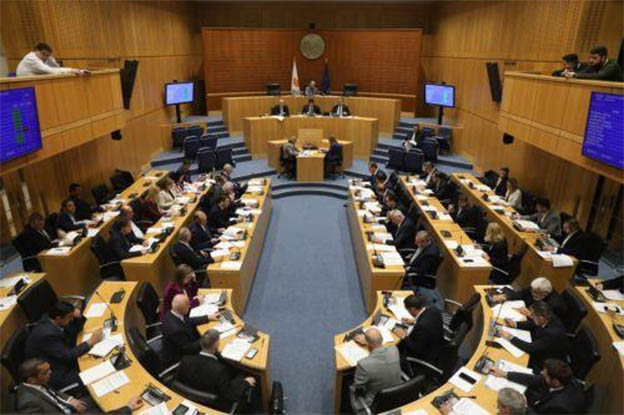Parliament on Tuesday accepted some of the amendments President Nikos Christodoulides had made to new bills regulating the pensions of future state officials.
Christodoulides had sent six of the bills, which had been passed by parliament last month, back from whence they came last week, with parliament running through those changes with votes on Tuesday evening.
The bills which had been sent back had, among other things, provided for an increase in the minimum pensionable age for state officials from 60 years old to 65 years old and the suspension of pension payments for officials who take up a second office.
Christodoulides had said the bills in their original form had run the risk of violating officials’ constitutionally guaranteed rights to property and the separation of powers, while also citing “risks” regarding pensions earned by judges and members of the public service commission.
He had also pointed out that MPs had failed to “obtain an opinion from the European Central Bank” regarding the case of the Central Bank of Cyprus’ governor.
One of the first orders of business on Tuesday was for House finance committee chairwoman and Diko MP Christiana Erotokritou to propose that the attorney-general and assistant attorney-general be exempted from the legislation.
This, she said, would ensure the bills would be constitutionally watertight. A total of 29 MPs voted in favour, one – independent Andreas Themistokleous – voted against, and three abstained.
However, MPs did not accept all the changes made by Christodoulides, instead choosing to reconfigure some provisions on their own terms.
This included a provision to extend the application of the new laws to officials in the broader public sector, while specifically exempting existing judges, members of the supreme administrative court, and the Central Bank of Cyprus’ governor.
In addition, they also eliminated provisions which gave the accountant-general “executive powers” regarding the distribution of pensions.
Erotokritou said the effort regarding pensions is being made “to close a very difficult chapter, which has provoked Cypriot society, and to have a different approach”.
“There are constitutional limitations, and not all inequalities have been eliminated, but there will be a new institutional framework which does not have all the distortions the current one does, from which the anger and the indignation of the public stems,” she said.
House president Annita Demetriou said the work being done by MPs is “very important” and said she was satisfied with the outcome of Tuesday’s session, before calling on Christodoulides to sign the new provisions into law, to resolve “the issue this is causing for society”.
However, not all MPs were as impressed, with Dipa MP Marinos Mousiouttas saying that the new iteration of the laws may also be unconstitutional.
“In practice, we are voting for the square root of nothing,” he said, warning that if the laws are found to be unconstitutional, “the old regime will remain in force, with more beneficiaries having been added”.
He said the bills passed by parliament on Tuesday “will not solve the issue of multiple pensions”, though he did concede that if they are found to be constitutional, “things may be somewhat better”, even if they do not solve the problem.
However, he said parliament should have instead passed Christodoulides’ amendments as written.
“The problem will only be solved if the government’s bill, which is simple and constitutional, are passed,” he said.
Akel’s Giorgos Loukaides, meanwhile, said his party’s aim was to “proceed as quickly as possible”, and said that as such, despite the fact that his party’s proposals were not accepted, all Akel MPs would support the changes agreed upon by parliament.
If ratified by Christodoulides, the new arrangements will apply to state officials appointed or elected after June 1 next year.






Click here to change your cookie preferences